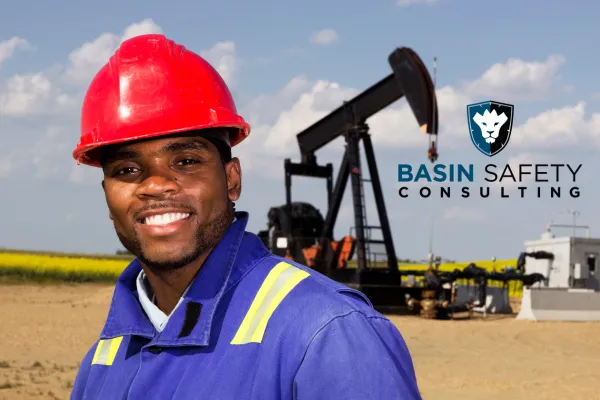Forklift Operator

OSHA's New Mental Health Requirements for Remote Oil‑Field Workers
The oil and gas industry has long focused on physical safety — but in 2025, OSHA has taken a bold step forward by addressing the mental health of remote oil-field workers. The new mental health requirements aim to reduce stress, isolation, and burnout, which are common among employees working in remote, high-risk environments.
This update marks a turning point in workplace safety regulations, expanding the definition of “safety” to include psychological well-being. Let’s break down what these changes mean, why they matter, and how employers can stay compliant.
Why OSHA Is Addressing Mental Health in Oil-Field Work
Remote oil-field work is physically demanding and mentally taxing. Workers often face:
Extended isolation away from family and friends
Harsh work environments in extreme weather
Long shifts with little downtime
High-risk operations that demand constant focus
Studies have shown that these conditions can lead to depression, anxiety, and even substance abuse. OSHA’s move reflects growing recognition that mental health directly impacts job performance, safety, and retention.
Key Changes in the 2025 OSHA Mental Health Requirements
1. Mandatory Mental Health Assessments
Employers must provide regular, confidential mental health screenings for remote oil-field workers.
2. Access to Support Resources
This includes 24/7 tele-counseling, crisis hotlines, and employee assistance programs (EAPs).
3. Supervisor Training
Supervisors must be trained to recognize early signs of mental distress and know how to direct employees to resources.
4. Work Schedule Adjustments
Employers must implement reasonable scheduling practices to reduce fatigue and burnout.
How Employers Can Comply and Support Workers
Create a Mental Health Policy
Include reporting procedures, confidentiality protections, and resource availability.
Offer Virtual Wellness Programs
Meditation sessions, resilience training, and peer support groups can be offered online.
Integrate Check-Ins
Weekly one-on-one calls with workers to assess both work progress and emotional well-being.
Promote a Supportive Culture
Encourage open dialogue about mental health without stigma or fear of job loss.
Benefits of Compliance Beyond Avoiding Fines
Lower accident rates from improved focus and decision-making
Reduced turnover due to better work-life balance
Higher morale and team cohesion, even in remote operations
Positive brand image as an employer that values workers’ holistic safety
Conclusion
OSHA’s new mental health requirements for remote oil-field workers are more than just a compliance checklist — they’re a call to action for a safer, healthier industry. By prioritizing mental well-being alongside physical safety, employers can foster a resilient workforce that’s equipped to handle the challenges of remote oil-field operations.
Archives
Categories
Benzene Testing
Bloodborne Pathogens
Breathing Air Systems
Certification Process
Confined Space Attendants
Confined Spaces
Construction Equipment Operators
Electrical
Environmental Compliance
Excavation and Trenching
Fire Extinguisher Training
Forklift Operator
Hazcom Workplace Safety
HAZWOPER
Hearing Protection Training
Heavy Equipment
Hydrogen Sulfide
Lone Worker
Lone Worker Solutions App
Monitoring
Oil and Gas
Oil Drilling
Online Training Confined Spaces
Permit-required
PPE
Radiation Safety
Rescue Equipment
Rescue Team
Safety Consultants
Safety Devices
Safety Tracking
Safety Training
Site Inspections
Training 1
Training 2
Training 3
Training 4
Training 5
Uncategorized
Virtual Access to Safety Data
Waste Haulers
Confined Space Rescue
Mental Health
VISIT US
4401 16th Avenue West Williston, ND 58801.
2740 Sims Street Suite B Dickinson , ND 58601
(701) 572-8140

BASIN SAFETY CONSULTING CORPORATION
Basin Safety believes in shared excellence. We are accountable to our core values:
● Pioneering Excellence Everyday
● Supporting each other to put customers first
● Asking the right questions, to ensure the greatest results.
Basin Safety Consulting © 2025. All rights reserved.
Powered By Upleveled Strategies

BASIN SAFETY CONSULTING CORPORATION
Basin Safety believes in shared excellence. We are accountable to our core values:
● Pioneering Excellence Everyday
● Supporting each other to put customers first
● Asking the right questions, to ensure the greatest results.
VISIT US
4401 16th Avenue West Williston, ND 58801.
2740 Sims Street Suite B Dickinson , ND 58601
(701) 572-8140
Basin Safety Consulting © 2025. All rights reserved.
Powered By Upleveled Strategies

